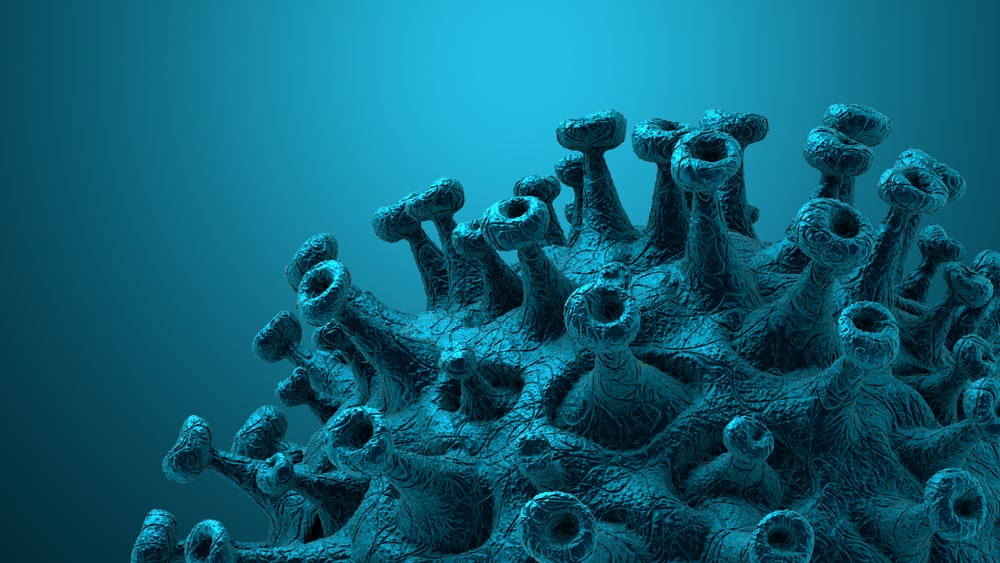Scancell Holdings plc, which develops novel immunotherapies for the treatment of cancer and infectious disease, has announced preliminary immunogenicity data from its phase 1 COVIDITY clinical trial at the University of Cape Town (UCT) Lung Institute in South Africa.
The objectives of the trial were to assess the safety and immunogenicity of two vaccine candidates, SCOV1 and SCOV2, in healthy, vaccine-naïve subjects, prior to testing the candidates as a booster in SARS-CoV-2 pre-infected or pre-vaccinated volunteers.
SCOV1 and SCOV2 are both plasmid DNA vaccines based on the company’s ImmunoBody technology and incorporate its AvidiMab modifications to further enhance the immune responses induced following vaccination.
The data from the COVIDITY trial showed that neutralizing antibodies were induced as well as T cell responses to both the receptor binding domain (RBD) of the spike protein and the nucleocapsid antigen (NCAP).
In vaccine-naïve subjects, the seroconversion rate (the level of detectable antibodies in the blood due to vaccination) was 67% following SCOV1/SCOV2 vaccination, with a broad reactivity against multiple COVID-19 variants, including the currently dominant Omicron variant.
These positive results demonstrate that SCOV1 and SCOV2, delivered via PharmaJet’s needle-free injection device, induce immune responses in naïve participants. Additionally, a single dose of SCOV2 boosted broad responses in previously exposed subjects.
Scancell seeking partners
The board of Scancell has decided not to take this vaccine forward in house due to the large size of later stage trials and the competitive COVID-19 landscape, however the positive data for COVIDITY demonstrates the validation of the vaccine platform, including AvidiMab.
As a result, Scancell will now seek a partner to progress the COVIDITY vaccine program. In addition, the success of the vaccine administration using PharmaJet’s needle-free injection devices in the COVIDITY trial provides rationale for the company to further incorporate the device in future trials.
Rod Dawson, managing director of the University of Cape Town Lung Institute, said: “We are delighted to report the positive immune response data from the COVIDTY trial. 66 participants were immunized with SCOV1, targeting the original A lineage of SARS-CoV-2 and/or SCOV2, targeting the Beta variant of concern. The results from the trial were highly encouraging, inducing neutralizing antibody and T cell responses with no safety concerns.”
Lindy Durrant, chief executive officer, Scancell, said: “These results are highly encouraging. Not only do they provide clinical proof of concept for the COVIDITY COVID-19 vaccine programme itself, more broadly they also provide important further validation and learnings for Scancell’s ImmunoBody and AvidiMab platforms. The success of a human trial demonstrating that an AvidiMab modified DNA vaccine, delivered via a needle free injection, can induce both T cell and antibody responses, with no safety concerns, is a pivotal proof point for Scancell’s clinical strategy.
“Further large studies would be required to confirm the potential of the COVIDITY vaccine candidates to stimulate broad, cross-variant reactivity and compete with the currently approved COVID-19 vaccines. Therefore, and as previously disclosed, the Board has decided to seek a partner to further progress this program. Going forwards, Scancell will focus its resources on progressing the portfolio of innovative immuno-oncology drug candidates that we have generated from our platforms.”
About the data
The initial COVIDITY phase 1 study design was to dose healthy, vaccine-naïve subjects with two vaccinations of SCOV1 to demonstrate safety, followed by two vaccinations of SCOV2 to specifically induce responses against the Beta variant that was prevalent in South Africa at the time the study started.
Twenty-two subjects were recruited and randomized to receive injections via either intradermal or intramuscular needle-free injection using a PharmaJet device. Thirteen of the vaccine-naïve subjects were seronegative at screening (indicating they had not had a previous COVID-19 infection) and nine were seropositive (indicating a previous infection); however, a surge of Omicron infections throughout South Africa resulted in most subjects becoming infected before they could generate a vaccine-specific immune response.
However, three seronegative participants completed all four immunisations without becoming infected with COVID-19; two subjects had vaccine-specific T cell responses specific to RBD and/or NCAP, and two had a four-fold increase in RBD neutralizing antibodies.
T-cell responses
To enable testing of the COVIDITY vaccine in a real-world setting, the protocol was amended to include SCOV2 boosting of volunteers who had previously been infected with SARS-CoV-2, irrespective of their vaccination status, or volunteers who were vaccinated but not infected with SARS-CoV-2. Forty-four subjects were recruited, 41 of whom were seropositive at screening and, as such, had pre-existing T cell responses specific to RBD and NCAP, with correspondingly high neutralizing antibody titres.
Following vaccination with SCOV2, 51% of participants who remained COVID-free during the trial showed a further doubling in their RBD-specific T cell response and 26% showed a further doubling of their NCAP-specific T cell response. RBD neutralizing antibody titres against the Beta variant doubled in 44% of subjects and NCAP antibody titres doubled in 42% of participants.
Scancell said of particular interest was that the RBD neutralizing antibody responses induced by SCOV2 cross-reacted with the Wuhan (A lineage), Gamma, Delta and Omicron variants.
The responses seen were similar irrespective of the route of administration, both SCOV1 and SCOV2 were well tolerated, there were no severe adverse events reported during the study and the needle-free administration was well received.
Partnering 2030: The Biotech Perspective 2023






